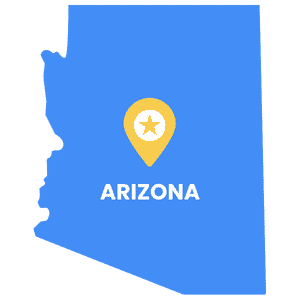Alabama State Information Page
Current Legality State – Alabama
Medical

Current Legality State
Medical

Your cannabis AI assistant
Tailored recommendations for your favorite
Sign up below for early access
*By signing up, you agree to the Terms and Conditions and Privacy Policy.
California residents, see our CA Privacy Notice.
Is Cannabis Legal In Alabama ?
2021 was a big year for medical cannabis legalization in Alabama. A medical cannabis program has been established and should begin functioning in September 2022…
Current state marijuana law has not decriminalized marijuana use or possession, however, local legislation has the option to limitedly decriminalize marijuana and there are initiatives led by Bobby Singleton to pass bills for decriminalization this year.
State Laws and Offenses
Here’s a list of marijuana laws for Alabama’s simple possession, sale, and distribution of marijuana, concentrate, or paraphernalia.
- Marijuana is a Schedule I drug in the state of Alabama
- Cannabis is still considered a Schedule I Controlled Substances per federal laws
- Personal use marijuana possession is punishable by a maximum fine of 6,000 USD and one year of incarceration. Possessing marijuana in personal amounts has many more penalties after first-time possession.
- Sales of any kind by a person is a Class D Felony punishable by penalties that range from 2 years to 20 years and 30,000 USD depending on the pounds
- According to Alabama code 13a 12, Cultivation and trafficking of any kind is a Class B Felony punishable by penalties ranging from 2 years to life imprisonment and 30,000 USD to 60,000 USD depending on the pounds and a previous conviction
- Unlawful Possession of paraphernalia for personal use is a misdemeanor punishable by a maximum one year sentence and a 6,000 USD fine
Alabama Qualifying Conditions For Medical Marijuana
Patients can become certified for a medical marijuana card in Alabama for any medical conditions below.
It is essential to remember that medical cannabis should not be used as the first option to treat these conditions; because it’s only available to patients after documentation that they have tried traditional therapies or if the initial medical treatment indicates that medical cannabis use is the standard for care.
- Amyotrophic lateral sclerosis (ALS)
- Autism
- Cancer-related symptoms
- Chronic or Intractable Pain
- Crohn’s disease
- Depression
- Epilepsy and seizure conditions
- Lou Gehrig’s Disease
- Human immunodeficiency virus (HIV)
- Immunodeficiency syndrome (AIDS)
- Multiple sclerosis (MS)
- Nausea; unrelated to pregnancy
- Panic disorder
- Parkinson’s disease
- Post-traumatic stress disorder (PTSD)
- Sickle cell anemia
- Spasticity
- Spinal cord injuries
- Terminal illnesses
- Tourette’s syndrome
- Significant weight loss (CBD food products or FDA approved oral tablet)
How to get a medical marijuana card in Alabama
Alabama approved Medical Marijuana just recently but has not implemented the program yet. There is no timetable but the program should begin operating shortly.
Does Alabama accept out-of-state medical cards?
The state of Alabama does not accept out-of-state medical marijuana cards from patients.
Get an Alabama Medical Marijuana Card
Alabama marijuana DUI laws
- First degree: A misdemeanor with Up to a year in jail, $600 to $2,100, 90-day suspended license. Depending on the county’s drug testing policy, offenders may have to adhere to a regular drug test.
- Second degree: Felony: $1,100 to $5,000 fine, imprisonment for a mandatory minimum of five days and not more than one year, 30 days of community service, one-year suspended license
- Third offense: Class B Felony: $2,100 to $10,000 maximum fine, imprisonment for a mandatory minimum of 60 days jail time but not more than one year, three-year suspended license
- Fourth or subsequent offense: Class C felony; $4,100 to $10,000 fine, imprisonment for a mandatory minimum of one year and one day but no more than 10 years in prison.
Alabama city specific laws
The laws listed here are for the state. Cities, counties, schools, universities, and employers may set their own rules and consequences. Be sure to check how marijuana laws differ in each county or town before you use.
Cannabis Policy Reform Timeline
1931: Prohibition began in Alabama and cannabis was banned for personal use
2012: The Alabama Medical Marijuana Patients Right Act was introduced and the legislation died in the judiciary committee
2014: The state senate passed a bill called Carly’s Law for legal CBD oil trials and a clinical study for patients with seizures
2015: The Medical Marijuana Patient Safe Access Act was passed by state legislatures, but never went passed an attorney to the Senate floor to legalize medical marijuana and update the law.
2016: Leni’s Law was passed and the governor signed a law to update Carly’s law and the number of patients who can access medical cannabis and CBD oil.
2019: A law to reduce recreational cannabis, personal-use possession, and misdemeanor and felony penalties advanced to the Senate
2021: Governor Kay Ivey signed the Darren Wesley ‘Ato’ Hall Compassion Act; Senate voted for legal medical marijuana for any state-qualifying condition.
Some of the Current Cannabis Bills in Alabama
- AL SB148 – FY25 Regular Session State General Fund – Governor’s Recommended for FY26 SENATE COPY
- AL SB132 – Controlled substances; psychoactive derivatives of hemp added as Schedule I drug
- AL HB186 – Appropriations from State General Fund for executive, legislative, and judicial agencies of the State, other functions of government, debt service, and capital outlay for fiscal year ending September 30, 2026.
- AL SB50 – Crimes and offenses; unlawful possession of marijuana; crime revised based on amount of ounces possessed; criminal penalties revised
- AL SB72 – Medical Cannabis Commission; process for selecting integrated facility licenses revised, appeals process of commission determinations revised, number of integrated facility licenses to be issued increased






